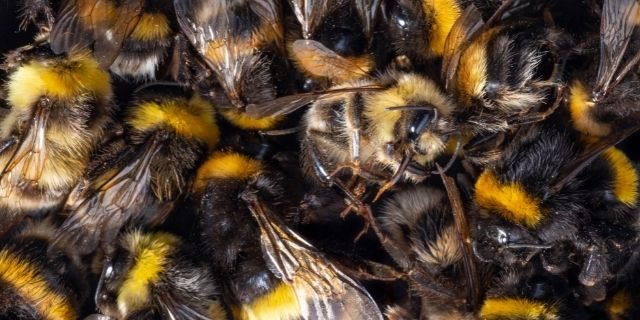11
May
Bayer Loses Bid to Overturn Neonicotinoid Ban in Europe

(Beyond Pesticides, May 11, 2021) Last week, multinational agrichemical company Bayer Cropscience lost its bid to overturn a 2018 ban on bee-toxic neonicotinoids throughout the European Union. The ruling from the European Court of Justice rejected all grounds on which the company filed its appeal, noting, “It must be held that the arguments put forward by Bayer CropScience cannot, in any event, succeed.” In denying the appeal, the court ruled Bayer responsible for paying its own legal fees, as well as the fees of environmental organizations that intervened to defend the ban.
Environmental groups are applauding the ruling, as it reinforces several important aspects of the EU’s pesticide policy that favor greater public health and environmental protections. In an interview with EURACTIV, policy officer Martin Dermine at Pesticide Action Network Europe notes that the decision provides more leeway for pesticide regulators to consider new scientific evidence on pesticide hazards. “More than that,” he told EURACTIV, “the Court confirms the definition of the precautionary principle: in case of doubts on the toxicity of a pesticide, the European Commission is entitled to ban it.”
Pesticide regulators in Europe began restricting neonicotinoids in 2013, when a continent-wide moratorium was put in place based upon evidence that neonicotinoids were contributing to declines in pollinator populations. The original ban applied only to flowering crops, but was expanded in 2018 to include a prohibition on all outdoor uses of the three most commonly used neoncotinoids – clothianidin, thiamethoxam, and imidacloprid. To make its determination, EU regulators analyzed over 1,500 studies from academia, beekeeper associations, agrichemical companies, farmer groups, nongovernmental organizations, and national regulators, and concluded that neonicotinoids should be severely restricted in order to protect honey bees and wild pollinators.
While Europe unwinds the use of bee-toxic pesticides and has further pledged to halve its use of pesticides by 2030 in order to protect pollinators and biodiversity, the U.S. Environmental Protection Agency (EPA) has done less than the bare minimum to protect pollinators from neonicotinoids and other hazardous pesticides. As the EU was issuing its first moratorium, EPA was denying a petition by beekeepers to recognize that honey bees face an “imminent hazard” from the continued use of neonicotinoids. As the EU was expanding its moratorium, EPA was being cited by internal watchdogs for its failure to provide basic oversight of voluntary state pollinator protection plans the agency claimed would be adequate to protect bees without regulatory intervention.
Although much of the problem lies with EPA’s consistent reticence to use the tools at its disposal to protect health and the environment, a significant amount of blame for the lackluster U.S. response to the pollinator crisis lies with the underlying federal statute governing pesticide registration and use. FIFRA, the Federal Insecticide Fungicide and Rodenticide Act, does not embrace a precautionary approach to pesticide regulation. Instead, the risk-based assessments of FIFRA place the onus on those harmed by pesticide exposure to prove their case. With most of the science justifying pesticide approvals in the U.S. conducted by the pesticide industry and much of it under lock and key by EPA as “confidential business information,” the regulatory process is both unwieldly and time consuming. As a result, EPA prefers to negotiate a “voluntary cancellation” of hazardous pesticides with manufacturers, rather than expend the resources and time associated with an onerous regulatory process subject to industry litigation.
Beyond Pesticides has documented numerous instances over the years where EPA has thrown precaution to the wind and allowed substances with questionable safety records to be sold to consumers. From systemic insecticides to nanotechnology, genetically engineered (GE) plants dependent on pesticides, antibiotics in agriculture, inert ingredients and wood preservatives, the sum of problematic areas for our health and safety feed into an urgent call to embrace a precautionary approach in the U.S.
The EU high court ruling underscores the value of the natural world. “The Court of Justice has reaffirmed that protecting nature and people’s health takes precedence over the narrow economic interests of powerful multinationals,” said Greenpeace legal strategist Andrea Carta to Reuters.
In light of legal limitations and lackluster regulatory decisions, U.S. residents are encouraged to support an approach to pest management that does not rely on highly toxic pesticides. By forgoing the use of toxic synthetic pesticides and fertilizers, genetically engineered seeds, sewage sludge and other unnecessary hazards, and working with natural systems, organic practices represent a truly sustainable path forward for public health and ecological stability. But in the U.S., even these standards are under attack by the same forces pushing toxic products in chemical farming. Help stand up for organic integrity by urging the U.S. Department of Agriculture to complete rulemaking on materials and standards allowed in organic production.
All unattributed positions and opinions in this piece are those of Beyond Pesticides.










